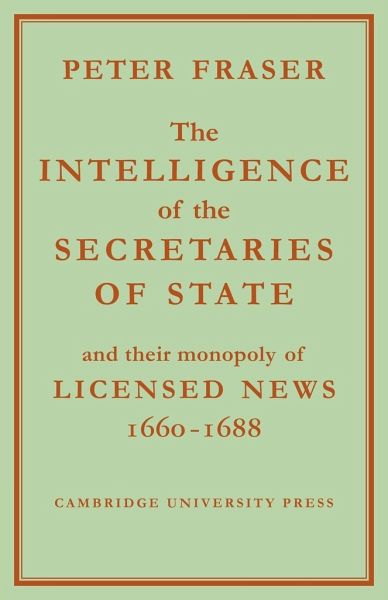
The Intelligence of the Secretaries of State
And Their Monopoly of Licensed News
Versandkostenfrei!
Versandfertig in 1-2 Wochen
41,99 €
inkl. MwSt.

PAYBACK Punkte
21 °P sammeln!
In Restoration England the Secretaries of State performed the duties not only of a Home and Foreign Secretary combined, but also of a modern news-agency. This is a 1956 study in a vital function of seventeenth-century government, in communications, the dissemination of news, and the growth of articulate public opinion. Mr Fraser first shows the scope and nature of the Secretaries' responsibility for providing the Council with intelligence, their control of the Post Office, and their use of spies among the Dissenters and in Holland during the Dutch wars. The second part covers the continental s...
In Restoration England the Secretaries of State performed the duties not only of a Home and Foreign Secretary combined, but also of a modern news-agency. This is a 1956 study in a vital function of seventeenth-century government, in communications, the dissemination of news, and the growth of articulate public opinion. Mr Fraser first shows the scope and nature of the Secretaries' responsibility for providing the Council with intelligence, their control of the Post Office, and their use of spies among the Dissenters and in Holland during the Dutch wars. The second part covers the continental system of news exchange, the Secretaries' correspondence with ambassadors, consuls, customs officers, postmasters and other, details of posts, and the sources of news published in the London Gazette and the newsletters from Whitehall.




